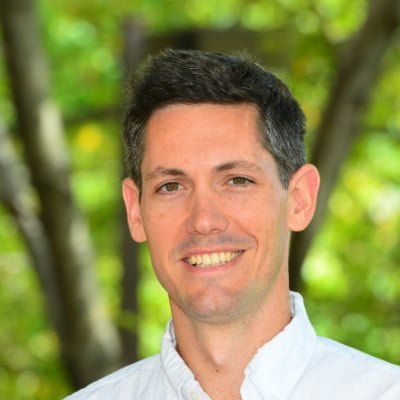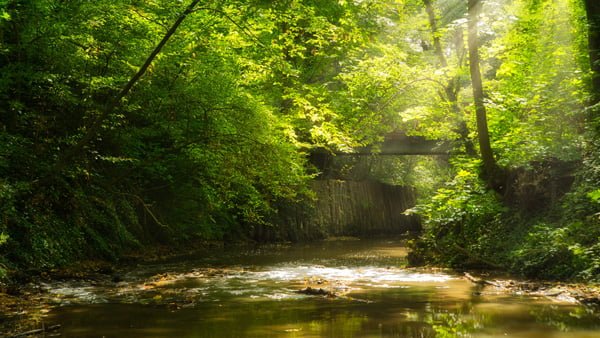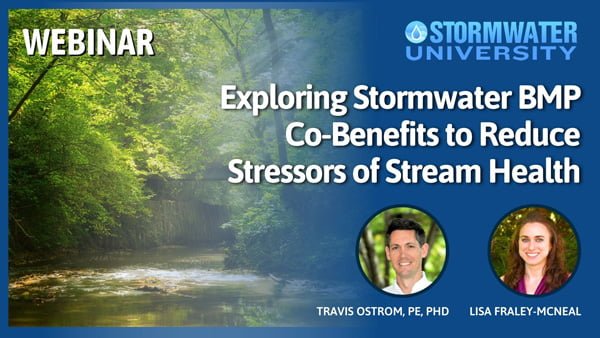Date: October 11, 2023 | 1:00 PM CST/2:00 PM EST
Duration: 1 Hour
Credits: 1.0 PDH / 0.1 CEU
Cost: Free
Webinar Summary
Part 1
Total maximum daily load (TMDL) goals to reduce sediment and nutrient pollution drive much of the stormwater management activity throughout the Chesapeake Bay watershed, resulting in urban and agricultural best management practices (BMPs) implemented to target these pollutants. These BMPs, however, may provide ancillary benefits beyond sediment and nutrient reduction. The Center for Watershed Protection (CWP) led a project to examine BMP co-benefits for reducing stressors to stream health additional to sediment and nutrients. Results indicated a variety of BMPs are effective at reducing certain stressors and that combinations of BMPs are likely required to effectively mitigate the multiple stressors driving poor stream health. This study provides a comprehensive understanding of the effect of BMPs on stressors to stream health and enables realistic expectations of co-benefits.
Part 2
The second part of the presentation delves deeper into two of the key BMPs discussed in the study from Part 1 – forest buffers and stream restoration. With growing interest and implementation of stream restoration in the Chesapeake Bay Watershed, there is an increasing need for research about how to protect riparian buffers and minimize impact on those buffers, especially healthy, mature trees, during stream restoration construction. CWP worked collaboratively with stakeholders to evaluate methods to reduce impacts of stream restoration projects on existing riparian ecology and forest buffers in Maryland, Pennsylvania, and Virginia. This presentation will provide an overview of the findings and best practices for minimizing impacts to riparian forests/ecosystems, as well as identified programmatic and research recommendations.
Learning Objectives
Upon completion of this course, attendees should be able to:
- Analyze the relationship between specific BMPs and their effectiveness in mitigating different stressors affecting stream health
- Evaluate co-benefits of BMPs
- Explain existing research gaps and apply a roadmap for enhancing monitoring efforts
About the Presenters

Travis Ostrom, PE, PhD
Water Resources Engineer
Center for Watershed Protection
Travis is a Water Resources Engineer with the Center for Watershed Protection (CWP), where he focusses on stormwater management. Travis holds a Ph.D. in civil and environmental engineering from the University of Maryland and is a registered professional engineer (P.E.) in Virginia and Maryland. He has broad knowledge in civil and environmental engineering with experience in the U.S and abroad, including as a Peace Corps volunteer in Honduras. Travis has also taught undergraduate environmental engineering courses as a Lecturer at the University of Maryland. His research expertise is in best management practices for urban stormwater treatment.

Lisa Fraley-McNeal
Senior Watershed and Stormwater Research Specialist
Center for Watershed Protection
Lisa Fraley-McNeal is a Senior Watershed and Stormwater Research Specialist at the Center for Watershed Protection with over 17 years of experience. Her areas of expertise include GIS and field methods for watershed assessment, watershed planning, stream restoration, Chesapeake Bay TMDL crediting, and applied research on topics related to watershed and stormwater management. She served as one of the Sediment and Stream Corridor Restoration Coordinators for the Chesapeake Bay Program and helped with development of the Stream Restoration Expert Panel Recommendations and subsequent workgroup updates. She has a B.S. degree in Geography and Environmental Systems, with a writing minor and cartography certificate from the University of Maryland, Baltimore County. Lisa also has a M.S. degree from the University of Maryland, Baltimore County in Marine and Estuarine Environmental Science and is currently working on her graduate GIS Certification at NC State University.
This webinar is produced in partnership with the Center for Watershed Protection.

Sponsored by










